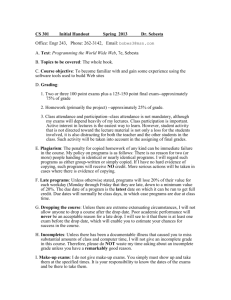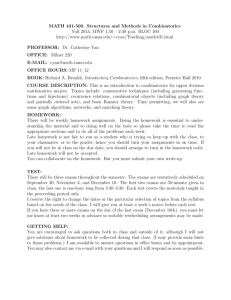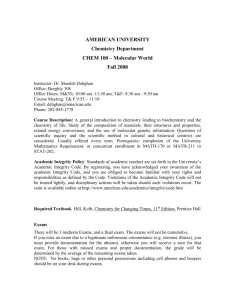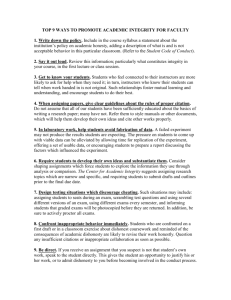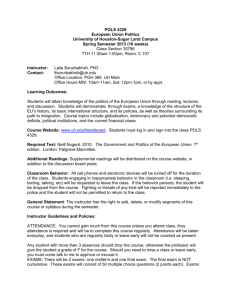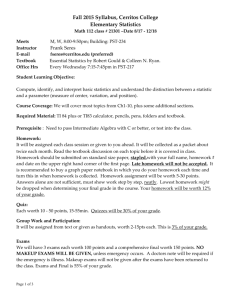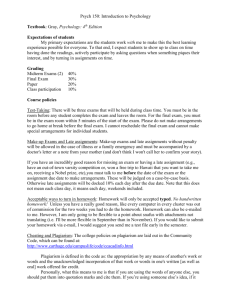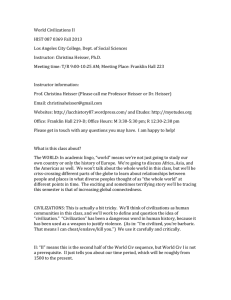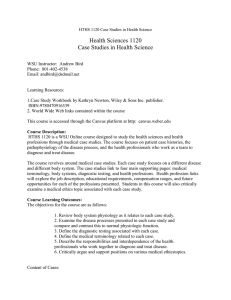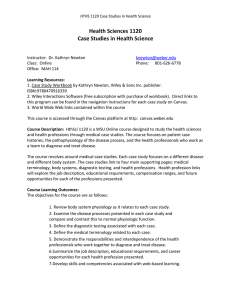Document 9037399
advertisement
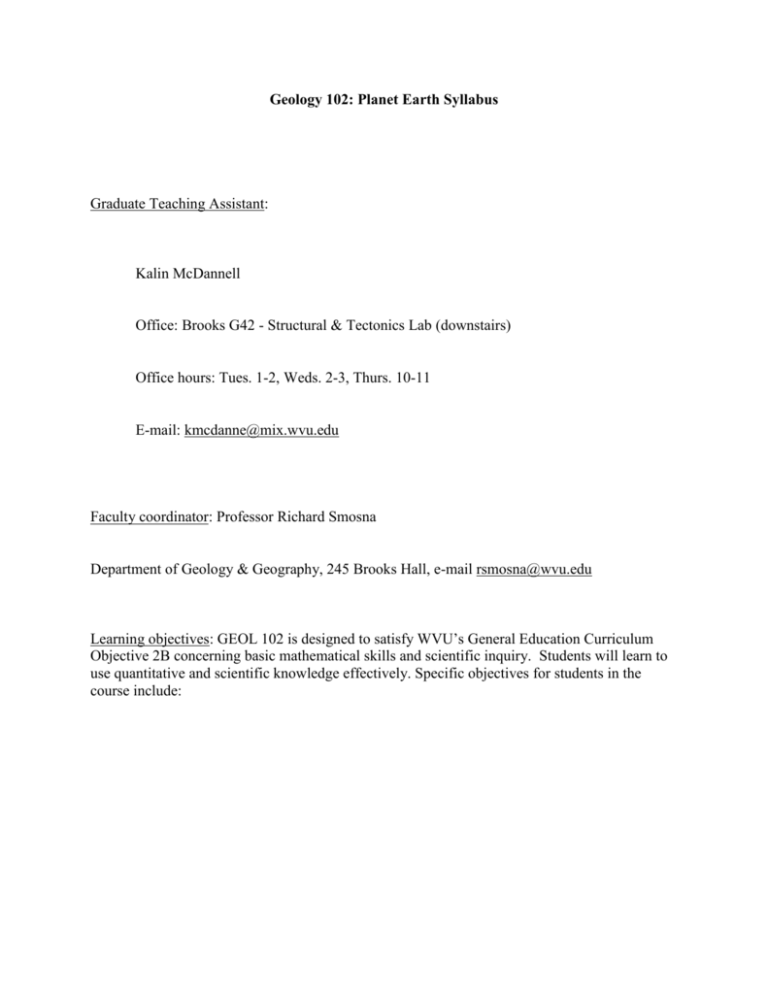
Geology 102: Planet Earth Syllabus Graduate Teaching Assistant: Kalin McDannell Office: Brooks G42 - Structural & Tectonics Lab (downstairs) Office hours: Tues. 1-2, Weds. 2-3, Thurs. 10-11 E-mail: kmcdanne@mix.wvu.edu Faculty coordinator: Professor Richard Smosna Department of Geology & Geography, 245 Brooks Hall, e-mail rsmosna@wvu.edu Learning objectives: GEOL 102 is designed to satisfy WVU’s General Education Curriculum Objective 2B concerning basic mathematical skills and scientific inquiry. Students will learn to use quantitative and scientific knowledge effectively. Specific objectives for students in the course include: Attendance required: GEOL 102 requires students to attend class weekly to conduct simple lab experiments and to analyze geological data pertaining to minerals, rocks, earthquakes, coal mining, and the like. There are no make-up labs. If you are in lab and do the work you receive 15 pts. per lab session, if you miss class you get 0 pts. Three exams will be given through the semester, and students are required to take all exams at their regularly scheduled times. Make-up exams are only for students with an acceptable excuse which must be presented in writing to the instructor as soon as possible after the missed exam. Make-up exams will often be different from the regularly scheduled exam and may be harder, so it is in your best interest to be there for exams! You must attend the lab section in which you are enrolled, with one exception. Labs that meet on Labor Day Monday, weekday football game, Election Day Tuesday, M.L. King Monday, or Good Friday will have to take one class with another section. Students may choose any other lab offered during the week. To get the 15 points for attendance, you must have that TA sign your lab manual. Exams: Each of the three exams comprises a mix of questions including fill-in-the-blank, definitions, short answers, matching, and multiple-choice, as well as identifying unknown minerals and rocks, constructing and interpreting graphs, and making simple mathematical calculations. Questions are based exclusively on the preceding lab exercises which make class attendance essential. Grading: The grading scheme, based on a combination of mandatory attendance and exam scores, is as follows: Maximum Lab work and participation, 15 points per lab . . . . . . . . . . . 165 pts Three exams, 100 points each. . . . . . . . . . . . . . . . . . . . . . . 300 pts Total . . . . . . . . . . . . . . . . . . . . . . . . . . . . . . . . . . . . . . . . . . . 465 pts Final course grades A = 418 or more total points (90-100%) B = 372-417 total points (80-89%) C = 325-371 total points (70-79%) D = 279-324 total points (60-69%) F = 278 or fewer total points Academic dishonesty: Faculty, students, and administrators share the responsibility to maintain the university’s academic integrity. Academic dishonesty includes plagiarism; cheating and dishonest practices in connection with examinations, papers, and projects; and forgery, misrepresentation, and fraud. Cheating and plagiarism are condemned at all levels of university life. Refer to the official university policy on academic dishonesty at http://www.arc.wvu.edu/rightsa.html. Social justice: West Virginia University is committed to social justice. We concur with that commitment and expect to foster a nurturing learning environment based upon open communication, mutual respect and non-discrimination. Our university does not discriminate on the basis of race, sex, age, disability, veteran status, religion, sexual orientation, color or national origin. Any suggestions as to how to further such a positive and open environment in this course will be appreciated and given serious consideration. If you are a person with a disability and anticipate needing any type of accommodation in order to participate in this class, please advise the department and make appropriate arrangements with Disability Services (293-6700).
